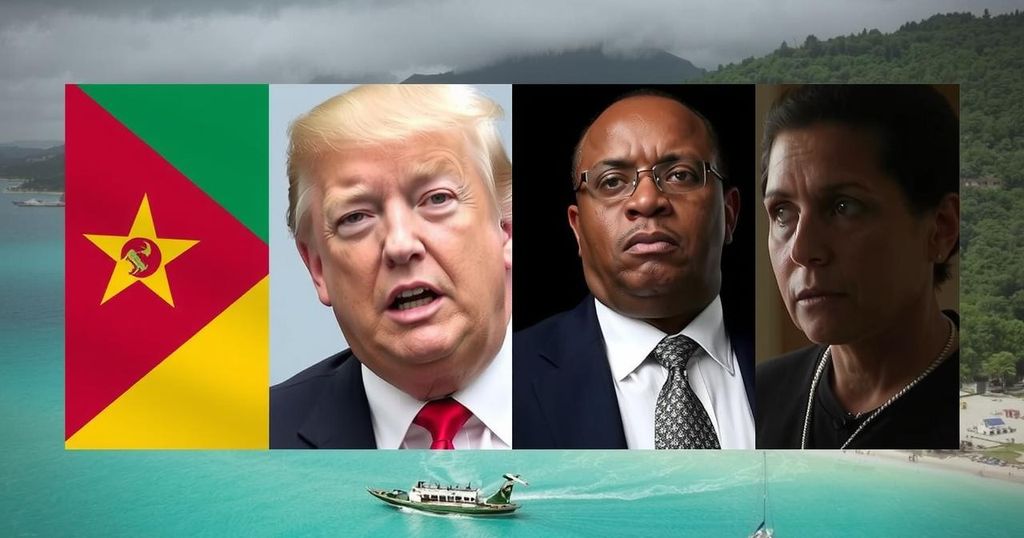Global Update: Refugees in Mozambique, Trump’s Legal Challenges, and Crisis in Haiti
This article examines critical global issues, including the refugee crisis in Mozambique due to election violence, legal troubles facing Donald Trump involving hush-money payments, the aftermath of a powerful earthquake in Tibet resulting in rescues and casualties, and the escalating gang violence in Haiti leading to significant loss of life.
Approximately 13,000 refugees from Mozambique have fled to Malawi in response to escalating post-election violence following the general elections in October. This exodus has resulted in refugee camps overflowing as access to essential resources has diminished. Furthermore, increased violence and roadblocks have exacerbated the already critical fuel shortages throughout Malawi, highlighting the dire necessity for international aid and resolution in Mozambique.
In the United States, Donald Trump’s legal team has requested a postponement of sentencing in his hush-money trial, which is anticipated to occur on Thursday. Convicted of 34 felony counts related to falsifying financial records tied to payments made to adult film star Stormy Daniels, each count carries possible penalties of up to four years in prison and a maximum fine of $5,000. The potential cumulative financial repercussions total $170,000; however, the presiding judge has indicated that incarceration is not contemplated.
In Tibet, more than 400 individuals have been successfully rescued following a devastating earthquake that struck the region with a magnitude of 7.1 on Tuesday. The disaster has resulted in significant destruction of villages and infrastructure, with numerous fatalities and nearly 200 individuals still unaccounted for. The earthquake’s epicenter was located in Tingri, approximately 50 miles from Mount Everest, although no avalanches were reported in the aftermath.
The ongoing gang violence in Haiti has reached alarming levels, with the United Nations reporting that 5,600 individuals have lost their lives over the past year. Among the incidents contributing to this death toll was a horrific massacre involving 200 individuals in December, rooted in voodoo practices, in Port-au-Prince. Despite the deployment of a Kenyan-led peacekeeping force, armed factions continue to dominate 85% of the capital, rendering efforts to restore peace largely ineffective.
This article addresses critical global events that reflect social, political, and humanitarian challenges. In Mozambique, elections have incited violence, resulting in a significant refugee crisis. Simultaneously, in the United States, legal proceedings involving a high-profile figure underscore the intersection of law and politics. The seismic activity in Tibet poses urgent challenges to disaster response, while Haiti’s escalating gang violence reveals a profound humanitarian crisis, emphasizing the need for intervention and support from international communities.
In conclusion, this report highlights the urgent and multifaceted crises currently impacting various regions, including the refugee crisis in Mozambique, legal challenges facing Donald Trump, natural disasters in Tibet, and rampant violence in Haiti. Each of these situations demands immediate attention and collaborative efforts from the international community to provide support and facilitate resolution. Understanding these interconnected issues is vital for fostering stability and humanitarian assistance across the globe.
Original Source: www.gzeromedia.com




Post Comment